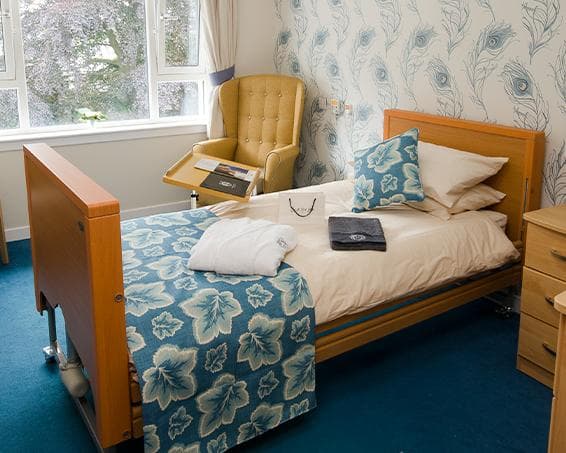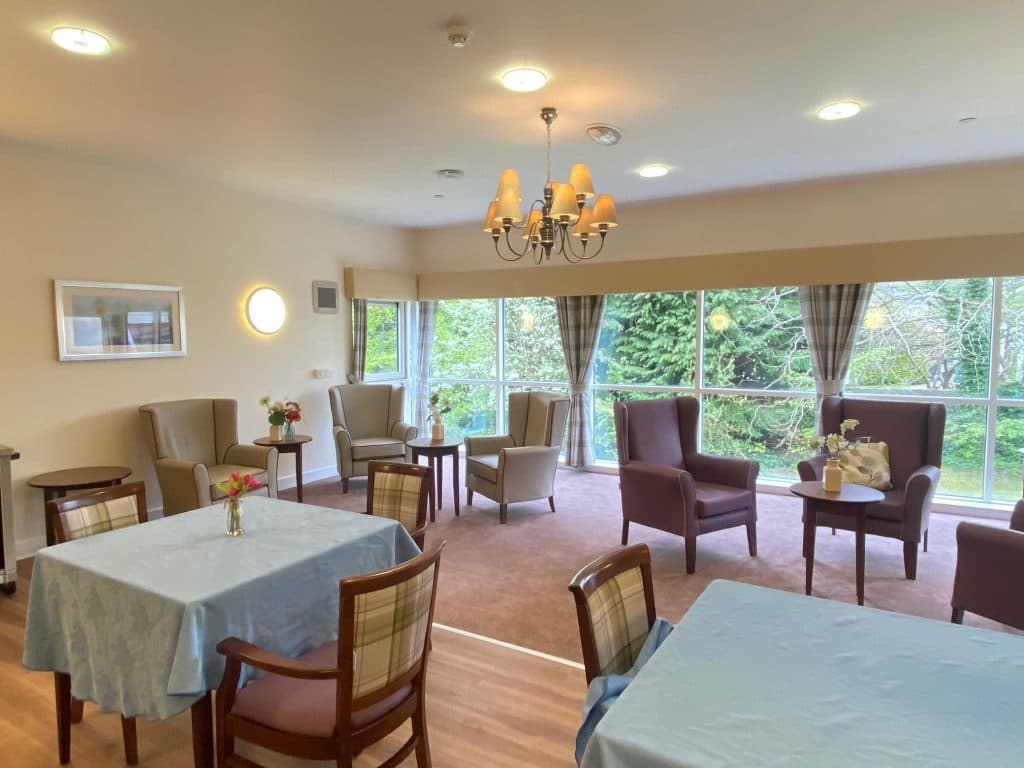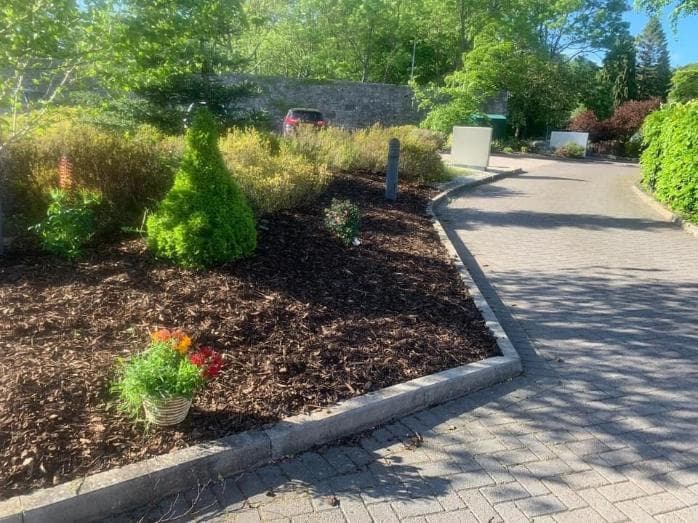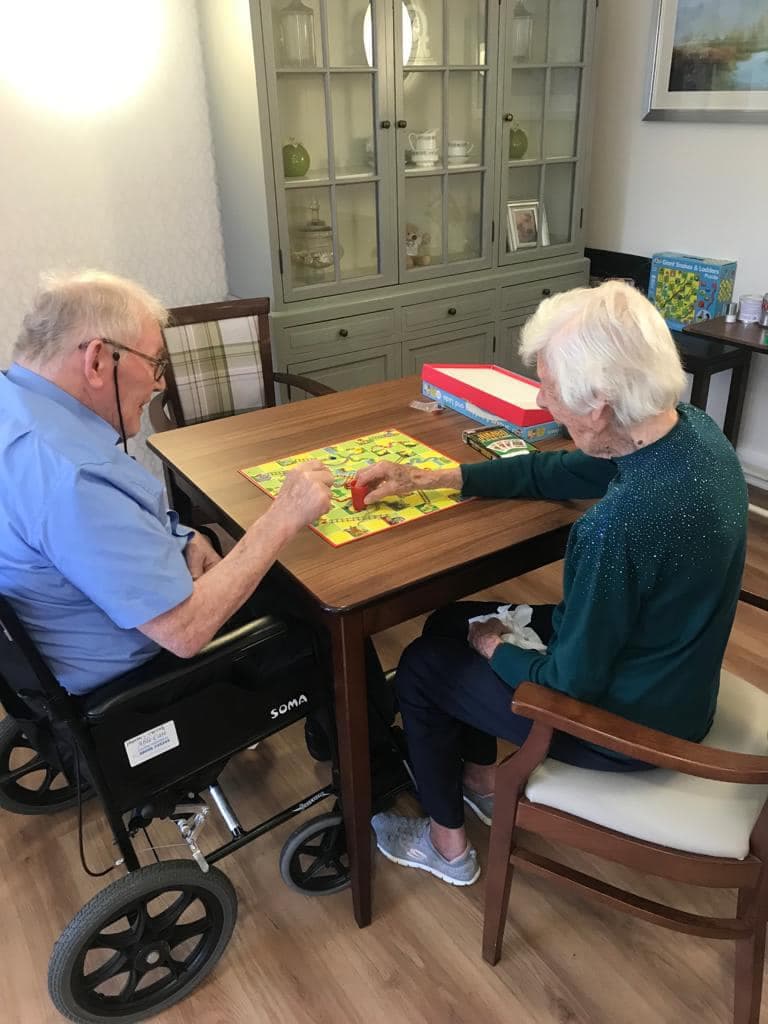What is the Difference Between Residential Care and Nursing Care?

Care homes across the UK offer a variety of different care services. Care homes can offer a range of care needs from low-level needs to more advanced needs. With the various care options available, many people are left wondering what the differences are between residential care and nursing care offered in care homes. Both types of care offer around-the-clock support for older people, providing residents with as little or as much assistance as they need to complete everyday tasks and do the activities they love. Whether it is helping individuals with personal care and their personal hygiene, communication, or assisting those with reduced mobility, both residential care and nursing care services in care homes can support this. In the blog, we delve into the main differences between residential care and nursing care.
What is Residential Care?
Residential care refers to general care and support provided in an elderly care home and is designed for individuals who need low-level assistance with daily tasks, mobility assistance, and administering medication while encouraging independent living.
Sometimes referred to as “group living arrangement” and "assisted living", residential care provides plenty of social opportunities and some care homes will have a variety of onsite facilities that residents can take advantage of.
Residential care homes are ideal for people with ‘low level’ care needs and residents can treat the setting as their home and live there without the stresses of daily household management, whilst also being reassured they have 24-hour support and access to many services available onsite.



What is Nursing Care?
Similar to residential care, nursing care supports those in old age with personal care in a group-living environment. Nursing care in care homes or nursing homes also offers 24-hour support but includes medical care as well as assisting with personal living needs. This type of care is utilised by those who need intensive rehabilitative care (following a stroke for example), those who require peg feeding, those with physical disabilities, and those with long-term health conditions which are all common with old age.
This type of care is provided by Registered Nurses, Nurse Practitioners and Qualified Care Assistants within the care home who have the experience and qualifications to take on a host of responsibilities, including administering medication, contributing to a resident's plan of care and collaborating with other medical professionals.
Residents receiving nursing care in care homes can also experience the benefits of group living as care homes will provide the support needed to move around the care home and accessible activities are also provided to ensure a varied daily lifestyle.



What is the Difference Between Residential and Nursing Care?
Both types of care support residents in a homely, live-in accommodation where qualified staff are available on a 24-hour basis to provide everyday support. Nursing care equally supports residents, however with additional care from a nursing team. Both types of residents receive a care plan created to meet their individual needs, however, with nursing care, a Registered Nurse or District Nurse will devise and monitor medical care plans, and provide and administer treatment and care for individuals with medical conditions, complex conditions and illnesses, a physical disability or learning disability.
- 24/7 Health & Wellbeing Care
For both residential and nursing care needs, residents are cared for 24 hours a day, 7 days a week. With Nurse Call points located in every bedroom and throughout the care home, nurses and care assistants can be called upon any time they are needed, day or night.
- Personalised Care Plans
It is important residents are cared for as a whole. Received by both residential and nursing care residents, care plans are put together by care homes to ensure comprehensive support is provided and residents receive care from a medical, personal, and well-being perspective.
- Medication Management
Residential and nursing residents in care homes both receive help with medication management, where highly skilled nurses supported by care assistants work around-the-clock to take over the responsibility of medication management for all residents receiving nursing care, as a more complex treatment plan may be required.
- Wide Scope of Practice
Due to the complex needs of older adults needing nursing care, the scope of practice undertaken by skilled staff in a care home allows them to offer a range of care services to residents on a 24-hour basis such as specialist medical care, wound care and personal care for those who are bed bound. As well as offering residential care and/or nursing care, some care homes will provide a variety of care services such as Dementia Care and Nursing Care.
Care Home & Nursing Home Costs
In the UK, each care home and nursing home establishes its fee structure based on the type of care and level of care it delivers. Beyond care services, factors such as location, accessibility, and amenities also impact care home fees. While some care homes offer a fixed weekly or monthly rate, other care homes follow a pay-as-you-go model. Costs will vary depending on the level of care required and the type of care home.
Individuals usually bear the responsibility for covering their care costs, known as self-funding, though many may face challenges affording care home fees. Recent research shows that the average fee for residential care is £760 a week, whereas nursing care ranges from £960 a week.
Funding may be available for certain individuals depending on their circumstances. Local authority funding is offered by a local council to support individuals who are unable to afford their care home or nursing home fees. To be eligible for this funding, a means test is conducted. This is when a financial assessment of a person's finances is carried out to see if they meet the threshold.
Complex Clinical Care is a type of funded care offered by the NHS in Scotland that covers the costs of a person's care if they have significant health needs or a primary health need. This could be those with with severe physical disabilities, medical conditions, mental health conditions or life-threatening illnesses as examples.
To determine eligibility for this type of funding, a care needs assessment will be conducted by visiting health professionals. This assessment will thoroughly examine an individual's needs using a checklist to assess if their health needs are either complex, unpredictable or intense.
What is The Best Type of Care Home for Me?
Although there are many different types of care homes, not all care homes offer the same services and facilities. It’s important to consider all aspects of lifestyle and care within a care home before making the final decision to move into your chosen care home.
If you are looking for shared living accommodation where you can socialise and receive support as and when you need it and enjoy on-site activities, a residential home would suit your needs. Should you or a loved one require a higher level of personal care or medical support from medical professionals, then a nursing home or care home that provides nursing care with registered nurses on-site could be the best option over a residential home.
Taking the step to look into care homes either for yourself or a loved one is a very big step, and should not be taken lightly. We understand that it’s a difficult time to navigate a care home and its offerings, and it’s hard to know where or who to turn to.
Upon admission to any care home, a prior personal assessment helps to establish a care plan that decides what level of medical care or personal care is best for the individual and ensures the care home can meet their requirements. A tour of a care home can also be offered and this helps to ensure that individuals will feel comfortable and at home in their new surroundings.
Promising a Continuity of Care at Rubislaw Park Care Home
At Rubislaw Park Care Home in Aberdeen, we provide both Residential Care and Nursing Care, as well as Dementia Care and Respite Care for short-term care needs. Situated in the desirable location of the West End of Aberdeen, Rubislaw Park Care Home is a well-established care home run by long-term management with an exceptional team. We are set within two acres of a truly unique environment that is filled with wildlife such as deer and owls.
We understand that deciding to move into a care or nursing home can be extremely difficult. At Rubislaw Park Care Home, we take a person-centred approach to everything we do and we assure you that our dedicated and compassionate teams want to make the transition as stress-free as possible.
As we provide nursing care those who receive residential care also benefit from having a nursing team available around-the-clock, should their care needs change. This also ensures a continuum of care, so no matter what support our residents need, they can continue to be cared for in the same setting, without the stress of moving. Both residential and nursing residents receive high-quality care from a dedicated team, as well as shared communal facilities and social activities that allow individuals to thrive. Our accessible activities programme ensures no two days are the same and that care home residents can benefit from physical activity and mental stimulation.
Our around-the-clock care means that we get to know our residents, ensuring we can provide the best individualised care for everyone at our care home. Providing care with a person-centred approach means we regularly consult with residents and tier relatives to find out what they enjoy and would like to try, while always keeping any care requirements an ongoing priority.





“This care home is very well run - most impressive. It is extremely clean and the staff are just excellent. So very kind to my mum. I'm also very impressed by the activities that the home do. It's inspirational! Lovely atmosphere within the home. I'm very happy with the care my mum receives. Rubislaw Park deserves five stars in my opinion!”
Review from V S, Daughter of Resident via carehome.co.uk.
Our dedicated staff go above and beyond to care for all residents and are led by Home Manager Gayle Bain who recently was awarded ‘Home Manager of The Year'.
Here to Support You
Understanding the differences between a residential care home and a nursing home and recognising what care is required for yourself or a loved one can be confusing. Our compassionate staff is on hand to offer advice and support to not only our existing residents and their relatives but to prospective residents and their loved ones too. We’re here to provide guidance and support in determining the best course of action for you.
We welcome you to get in touch with any questions you have regarding our care services at Rubislaw Park Care Home. Whether it's long-term or short-term care you require, we are here to help you find the best fit for you or your loved one's needs. Feel free to visit our FAQs page where we answer the most commonly asked questions.




